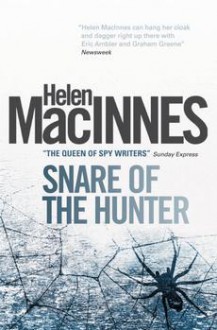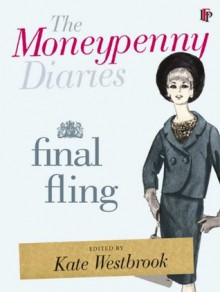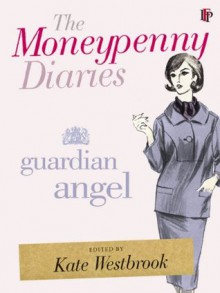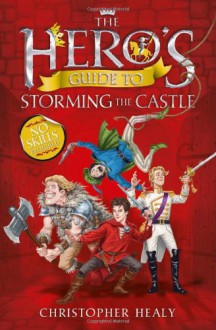I was angry with my aunt for almost a year after receiving the diaries, as I oscillated between the version of history I taught and thought I knew, to that recorded on their pale-blue pages. Almost automatically, I worked at the same time to authenticate them, to verify, to the best of my ability, that they were a true and accurate depiction of the events she described. As far as I could determine, they were. They are. I wrestled with what I should do with her unusual – and, in some senses, unwelcome – legacy.
I decided they had to be published and with that decision came emotional release. It was as if my resentment of my aunt’s subterfuge was liberated by the realisation that she had sent the diaries to me for a purpose. She had wanted me to have them; she had wanted me to know. As I delved deeper into her secret world, I came to understand the constraints she was living under: the reasons why she could not reveal the true nature of her world. It was not just the diktat of the Official Secrets Act. Jane
Moneypenny knew so much about the inner workings of the SIS that it became a liability. It made her an attractive target for enemy officers, looking to penetrate further the London headquarters. Her knowledge was also dangerous in itself; what would happen if she found out more than she should?
I first read this trilogy in early 2013, not that long after I joined Goodreads and started this whole book blogging adventure. I wish I had written a review of the three books back then, but I had probably not yet gotten around to figuring out what I wanted to review and how I wanted to do it.
It’s a pity, because I distinctly remember that I liked the books so much that I read them in quick succession, but then forgot what the plots were about or why I liked them.
This time around, I have been a more mindful reader. A more observant reader.
This time around, I noticed also that I have become an altogether different reader. Life, books and discussions with other people do that to you. I’m delighted with this. Who really wants to stay the same person?
This time around, I read The Moneypenny Diaries as a reader who is quite familiar with Ian Fleming, James Bond, with the history of espionage during the Cold War, with the works of other ex-spies like Greene and Le Carre. And what can I say, I enjoyed the books so much more for it than even on my first read.
Don’t get me wrong, the books are not perfect. There are a few loose ends, a couple of anachronisms (over the three books, which is not a bad average), and a few things at the end that I'm not sure are logical. Despite all that, these three were so much fun to read and it was so satisfying to find a decent spy thriller in the Bond universe that did not try to emulate Fleming's writing. The original characters were all there, just with more depth and much better setting into the historical background.
But what about the actual stories?
In Guardian Angel, we are introduced to the story of Dr Kate Westbrook, a Cambridge historian, who has inherited her aunt’s diaries. Her aunt was Jane Moneypenny. Reading her aunts diaries, Kate discovers that her aunt was working for the Secret Service, and had a life that was completely unknown to her family.
Her aunt chose Kate as the recipient of the completely unauthorised diaries because she needed someone she trusted to become the holder of the information and make a decision of what to do with the diaries.
Kate decides to publish the diaries and the following storylines emerge:
- The Bond stories. This is where Moneypenny's story follows the Bond novels.
- The niece’s story - This is the setup of the series. Moneypenny's niece inherits her secret diaries and decides to publish them - which puts her at odds with the Official Secrets Act. She also tries to investigate some of the loose ends in Moneypenney's life.
- Moneypenny's father: In her diaries, Moneypenny is trying to find out what really happened to him. (Incidentally, this weaves in another real life sub-plot about Colditz Castle...)
- Moneypenny's own story – her personal life and her life in the Firm as set against the events of world history.
Sounds convoluted? It isn't. The author really carries this off quite well.
The author, by the way, is Samantha Weinberg, but the books were originally published under the name of Kate Westbrook.
Guardian Angel is set against the background of the Cuban Missile Crisis and despite a, not slow, but rather subdued start, one of the agents that Moneypenny works with is getting into trouble.
The agent we are talking about is, of course, Bond. James Bond. Moneypenny carries a torch for him but knows full well that this is not a relationship she wants to pursue. They have fun flirting but are much better friends than to start off anything else.
I love the way that Weinberg wrote this relationship. There was no swooning, no Bond worship, no patronising comments from Bond, just genuine care for each other.
There is another guy in this story who is Moneypenny’s romantic interest but part of the thrill of this story is that we get to get a feel for the difficulty of the characters situation – they cannot know who to trust.
We also get a good feel for Moneypenny as a woman in a male-dominated environment. She’s not an agent, but she is also not “just a typist”. Weinberg was spot on in her writing about the time and the place and the roles of the characters. It was one of the aspects that immediately drew me in.
As the story develops, Moneypenny takes on more of an assertive role, but we cannot compare her to Bond in any way. Nor should we.
In the second book, Secret Servant, we get to follow her as M becomes more confident in her abilities as an agent. Tragedy has struck by this time and we get to see Moneypenny facing her demons by taking on a task for the Firm: to travel to East Berlin and Moscow and extract Kim Philby and his wife Eleanor back to the UK.
I am quite familiar with the story of Kim Philby and some of the places Moneypenny travels to, and I was delighted to read that Weinberg had put in a lot of research to have the story follow the historical and geographical facts here. I also loved some of the quips:
Thursday, 27th February
We leave in three nights. The plans are nearly set. Philby insisted we travel overland, by train to Leningrad and then north to the Finnish border. He says that’s our only chance. We leave on the midnight train and should not be missed until mid-morning the next day, if all goes as we hope. To give us an extra few hours, Eleanor will stay in their flat that night. The next morning, she has made an appointment at the American Embassy to discuss her forthcoming planned trip home to see her daughter. Sergei knows she is going; it should not cause suspicion. Not until she fails to leave the Embassy compound, by which time we should be almost at the border.
I have the address of a safe house in Leningrad. A taxi-driver will meet us at the station and take us there. Agent 859 will be waiting to escort us to the meeting-point just this side of the border, in the woods near Vyborg. Head of S insists it will work like clockwork, but I don’t think even he believes that. Still, if we can trust Philby – and I suppose we have to, though there are times when a look of uncertainty crosses his face – it is our best chance of escape.
If we can trust Philby.
This is suspense writing as it should be.
If you know the story of the Cambridge Spies, Kim Philby could not be trusted, but could he be in the context of this story?
I loved it. Almost every time that I thought I had figured out the plot and characters, I had to question everything because it was just not clear which character could be trusted.
This culminated in the third book, Final Fling: Moneypenny’s boss, M, suspects that there is a mole in the organisation which puts the whole organisation not only on edge but also at risk from interference by other government departments.
In a way, there were some similarities to the film Spectre, which has really nothing to recommend itself for (imo) other than portraying the close bond of loyalty between the main characters: M, Bond, Moneypenny, and Bill Tanner.
At the height of this crisis, the plot was so gripping that I literally had to finish the book in one sitting.
Friday, 23rd October
My world is going mad, and I fear I am not far behind. Everything I thought I knew is being turned upside down, and I’m not even sure whose side I’m on any more. As I arrived at the Office this morning, James was being marched out, flanked by two large men in ill-fitting suits who had about them the look of retired policemen. He wasn’t struggling, but was clearly unhappy about the situation.
Events snowball out of control.
Is anyone after me? It seems increasingly like a game from which I’ve managed momentarily to step away. The more time I am here, the more ridiculous that game appears to be. I no longer think it’s worth it. I couldn’t even tell my sister where I was going. I have no one to confide in. I don’t trust my closest friend. I think the KGB might want to kill me. Is that a life? I have four more days here in which to make my decision: whether to stay at the Office, or to go. If I stay, then I have to discover the identity of the Sieve; if I opt to leave, it will be a wrench, separating me from what has been the major part of my life for over a decade, and from the people who have become almost family, and whose friendship I know I’ll lose. If every day I walk from one side of the island to the other, I don’t think I’ll come up with a clear answer. Whatever I do, it will be with regret.
I will leave off commenting on the plot that follows from this, other than to say that Moneypenny’s niece is drawn into her aunts affairs much more than she bargained for, and even years after her aunts death, there is still a threat that needs to be stopped.
This was a gripping tale. One that appealed to lover of history, the lover of mystery, and the lover of spy novels in me. Most of all, the re-read also made me think about the use of historical facts in fiction, the use of fiction as historical fact – and most of all about the labels we seem to dish out.
As I mentioned in an earlier post, one of the reasons for the re-read was that I saw this trilogy labelled as “Chick-Lit”. Wtf?
Sure, there are a few stories about relationships in these three books. Sure, the book focuses on the lives of two thirty-something women. Sure, some aspects of the stories were less intellectually challenging than others. So what??? Does this make this “Chick-Lit”? If so, what about the original Bond novels?
The only difference between The Moneypenny Diaries and the Bond novels is that Weinstein’s books focus on two female main characters. To slap a “Chick-Lit” label on them and an “adventure”, “spy thriller”, or similar label on the other is just plain wrong.
Furthermore, thinking about the whole label of “Chick-Lit” and how basically any book that is about a woman of a certain age and features aspects of that character that involve deliberations of relationships with anyone, could be classed as chick-lit really annoyed me. Why isn’t that just “lit”? And why isn’t there a label for inconsequential novels with a male protagonist ? Or is there?
Having used the term “Chick-Lit” quite a few times in this review, I think I’m done with it. For good.
That "chick-lit" label can go and set fire to itself.


 Log in with Facebook
Log in with Facebook 









